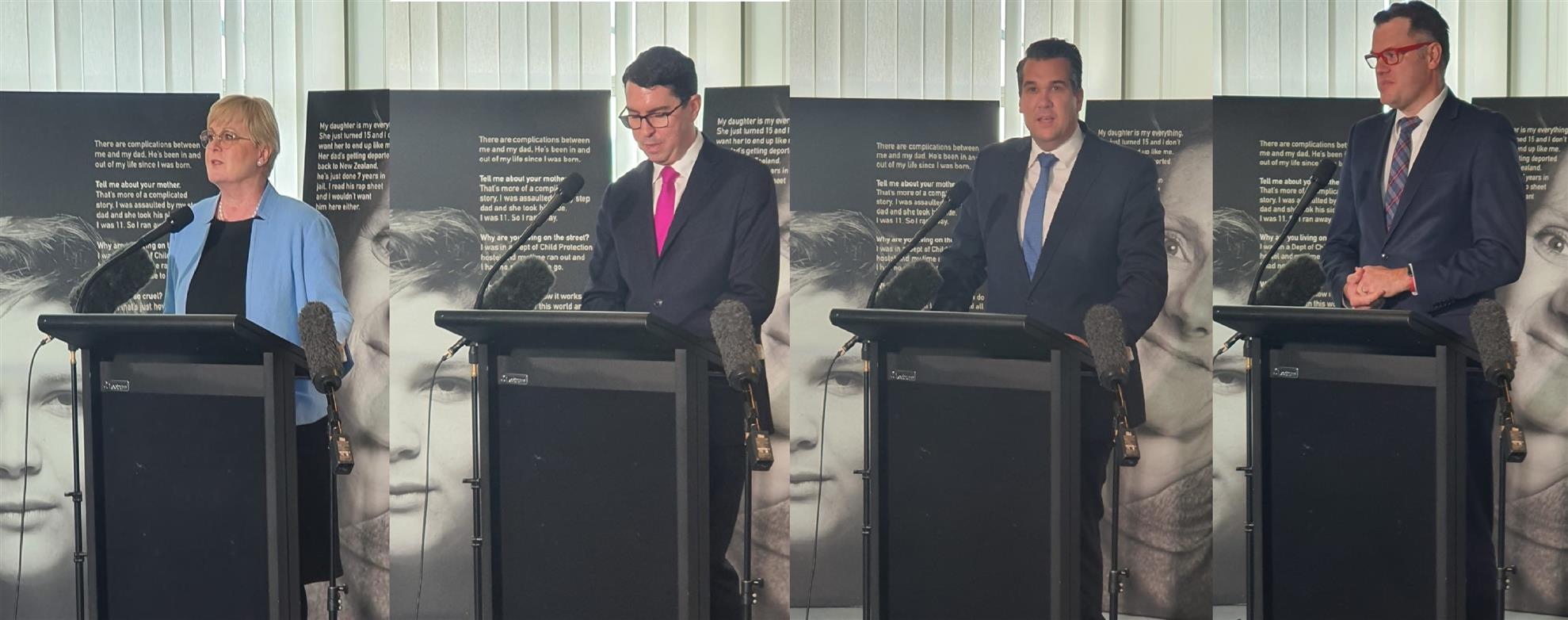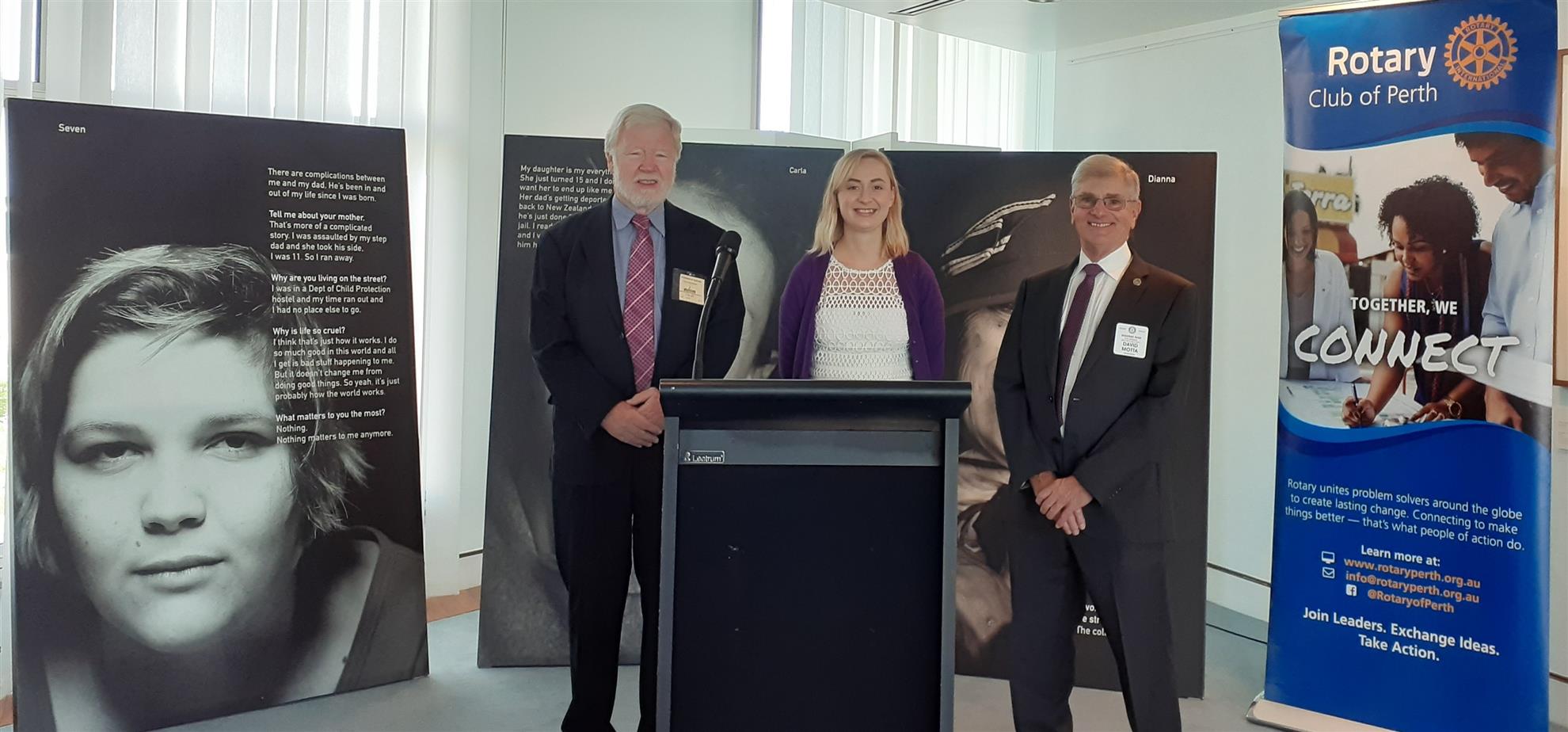A team from Rotary in WA travelled to Canberra to present the Eye Contact exhibition to the members of Parliament in Australian Parliament House on International Womens Day, 8th March, in order to get the Federal Government to increase their support for homeless people and in particular older homeless women. Over 49,000 women in Australia face homelessness every night - 41% of these as a result of family violence. Australia has the third highest rate of homelessness in OECD countries. Women over 55 are the fastest growing homeless cohort due to disrupted work lives and an increasingly unaffordable private rental market.

Senator Linda Reynolds opened the event, thanked Rotary for hosting it and introduced Tara Sherwood who spoke on behalf of Rotary. Tara spoke of Rotary's projects to assist homeless people including Socks in the City, Common Ground, "My Home" and Passages. She highlighted how many people are only a few steps away from homelessness. For example, someone could have a good job and rental house but receive a 30 day notice terminating their tenancy and not be able to find a new home in 30 days. With vacancy rates being under 1% in many cities it is extremely difficult for everyone to find housing, and even more so for single parents and low income earners.
Tara introduced David Pearson, the keynote speaker and CEO of the Australian Alliance to End Homelessness, who highlighted the personal costs of homelessness and stress caused by decreasing housing affordability, in order to encourage the Parliamentarians to amplify their efforts to address these issues and increase funding for social housing. Mr Pearson further said that homelessness was a growing issue Australia-wide and Australians were becoming increasingly de-sensitised to people living and dying on the streets of our cities and communities. 'This exhibition provides an important opportunity to raise awareness among Parliamentarians that it doesn’t need to be this way. Around the world, there are growing numbers of communities that are ending this type of homelessness and we should seek to do that in Australia too.’
Following David’s address, Hon Patrick Gorman, MP and Hon Michael Sukkar, MP addressed the group and confirmed their commitment to the cause. Approximately 50 people attended the event including about 25 Members of Parliament, and guests from St Vincent de Paul Society, Catholic Care, Uniting Care Australia and the Rotary Club of Murrumbidgee.
The project was developed by the Homeless Hub, a team of people from various Rotary Clubs in WA who work together to help homeless people. Dr Ken Mullin (Heirrisson), the chair of this group, together with Tara Sherwood (Perth Roteract) and David Motta (Osborne Park) travelled to Canberra to present this exhibition.
The Eye Contact series is a confronting set of portraits of 20 Western Australians impacted by homelessness. The larger-than-life photos lock the viewer’s gaze with the subjects and, along with the written snapshots of their personal experiences, confront the viewer with the difficulties of living on the street. Eye contact is something most people avert when passing a person impacted by homelessness. The exhibition seeks to change the way society views people impacted by homelessness by recognising the humanity, individuality and life within the subjects. The series constructs a story of hope when people work together against a wicked problem such as homelessness.

Rotary WA runs a “Homeless Hub” to co-ordinate its homelessness projects. These projects include developing tiny homes for older women, supporting victims of domestic violence, a Common Ground facility, a medical respite centre, a drop-in centre, prevention strategies, and provision of food and clothing. The proceedings went off without a hitch and were considered a great success. Whilst no direct outcome can be attributable to this event, the constant pressure on the government to amplify their efforts for this cause will undoubtedly over time pay off.